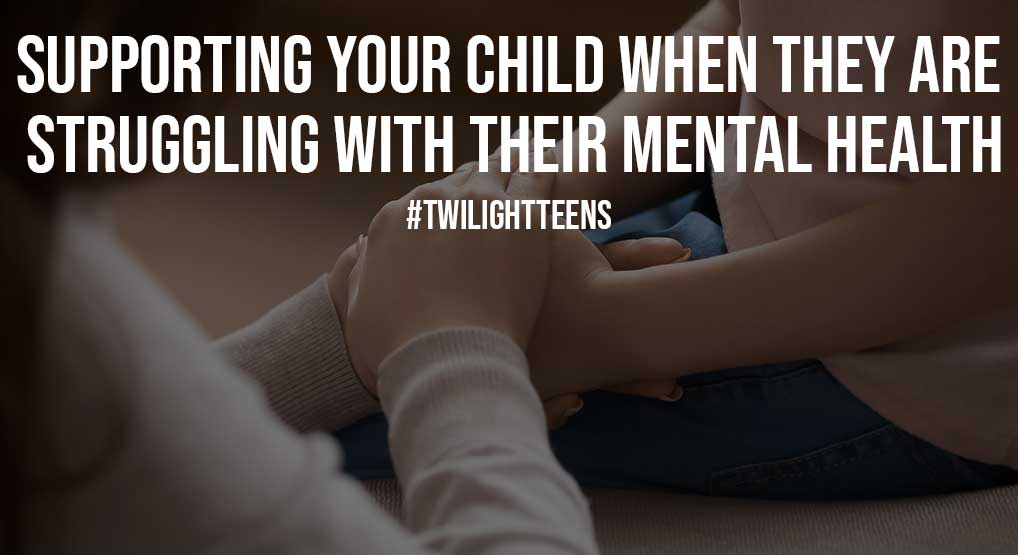As a parent, you want the best for your children, and seeing them in pain either physically or emotionally can be incredibly tough to witness. Your instincts will be driving you to do whatever you can to make things better for them and help them through this difficult time, but it can be hard to know what to do sometimes.
Everyone deals with their emotions and mental well-being in different ways, so what you think might work for you may not be the way your child can or wants to deal with their issues.

However, that doesn’t mean that there aren’t plenty of things you can do to support them and if you are worried about your kids at this time, use the following tips to see if they can help.
Table of Contents
Keep the Lines of Communication Open
Your child might not always want to talk about what is bothering them, and that’s OK. It is important to give them space and not force them into a conversation that might make them uncomfortable, but equally, they need to know that they can talk to you when they are ready.
Do ask them how their day was and allow them to open up to you if they choose to, and even engaging in other conversations can help them feel more comfortable talking to you in general.
Even reminding them that they can talk to you about anything at any time can help to make them feel more confident about opening up to you.
Also Read: How To Get Your Teen Have More Family Time?
Routine is Important
When you’re feeling down, it isn’t uncommon for you to lose motivation and perhaps want to spend the day in bed or not engage with your usual activities. While taking a break can sometimes be beneficial, a routine can do a lot to help boost your mental health and can even help you to take your mind off of what is bothering you.
If you are worried that your child is struggling with emotional or mental hardships at the moment, do your best to try and help them stick to a good daily routine as this structure to their day can be helpful to keep them occupied and perhaps even provide some comfort to them.
Speak to a Mental Health Specialist
If you are growing increasingly concerned over your child’s mental wellbeing, reaching out to mental health specialists is worthwhile. Therapists who work with younger children and adolescents might be able to give you a better insight into what is going on with your child, as well as tips and advice on what you can do to help.
Little Otter Health is a good example of a mental health service for young children and families that could be a good resource and support for you.
Speak to Your Child’s School
Another step that could be useful in helping you to support your child is to contact their school. Sitting down with their teachers to discuss your concerns could be a good start to making sure that your child is getting the support they need from their educators, but also an opportunity to find out if the teachers have noticed anything concerning themselves.
This could be that they are finding a particular subject difficult, having problems with bullies or their behaviors toward other students, difficulty concentrating, and so forth.
Try to Provide Positive Distractions for Them
While it is important to acknowledge the problems that can be impacting your mental health, dwelling on things can often make you feel worse. This is why having some positive distractions to take your mind off of things can help, and if you do think your child is struggling with depression or another issue, you can do this for them.
Perhaps organize a fun family day out at the weekend or see if they want to help you with some baking or arts and crafts – both of which can be soothing hobbies. Even something as simple as sitting down together for a family movie night can be a positive experience that might cheer them up and distract them from their problems to give them some respite.
Also Read: 3 Great Gift Ideas for our Dad!
Remind Them of Their Value
If your child is struggling with their mental health, particularly low self-esteem and/or depression, it can be hard for them to remember all of their good qualities and how valuable they are.
Reminding them of how much you love them and how important they are to you might help to boost their confidence, and over time, hopefully, it will start to get them to see themselves in a more positive light. When you do have conversations with them active listening and asking them for their opinions can also help with this as it shows them that you do value what they have to say.
No parent wants to see their child suffer, and difficulties with mental health can sometimes be more challenging to navigate no matter what your age. If you want to help your child feel more supported when they are struggling with their mental wellbeing, consider the tips above and see if they can help.

Leave a Reply